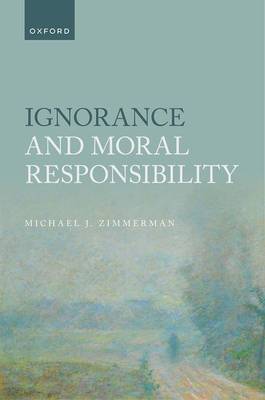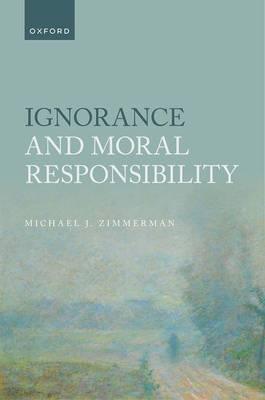
- Retrait gratuit dans votre magasin Club
- 7.000.000 titres dans notre catalogue
- Payer en toute sécurité
- Toujours un magasin près de chez vous
- Retrait gratuit dans votre magasin Club
- 7.000.0000 titres dans notre catalogue
- Payer en toute sécurité
- Toujours un magasin près de chez vous
Description
Michael J. Zimmerman investigates the relation between ignorance and moral responsibility. He begins with the presentation of a case in which a tragedy occurs, one to which many people have unwittingly contributed, and addresses the question of whether their ignorance absolves them of blame for what happened. Inspection of the case issues in the Argument from Ignorance, whose conclusion is that, to be blameworthy for one's behaviour and its consequences, one must at some time in the history of that behaviour have known that one was engaged in wrongdoing-a thesis that threatens to undermine many everyday ascriptions of responsibility. This argument is examined and refined in ensuing chapters by way of, first, a detailed inquiry into the nature of moral responsibility, ignorance, and control, all of which play a crucial role in the argument, and then an application of the fruits of this investigation to the question of whether and how someone might be to blame for behaviour that stems from either culpable ignorance, negligence, recklessness, or the kind of fundamental moral ignorance that often characterizes evildoers. The Argument from Ignorance implies that in a great many such cases the agent has an excuse for the wrongdoing in question. This is a disturbing verdict, and in the final chapter challenges to the argument are entertained. Despite the merits of some of these challenges, it is held that the argument, revised one last time, survives them.
Spécifications
Parties prenantes
- Auteur(s) :
- Editeur:
Contenu
- Nombre de pages :
- 392
- Langue:
- Anglais
Caractéristiques
- EAN:
- 9780192859570
- Date de parution :
- 19-12-22
- Format:
- Livre relié
- Format numérique:
- Genaaid
- Dimensions :
- 163 mm x 226 mm
- Poids :
- 725 g

Les avis
Nous publions uniquement les avis qui respectent les conditions requises. Consultez nos conditions pour les avis.






